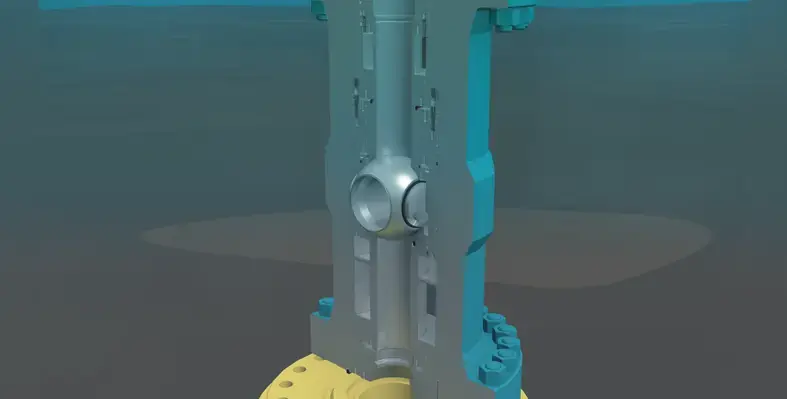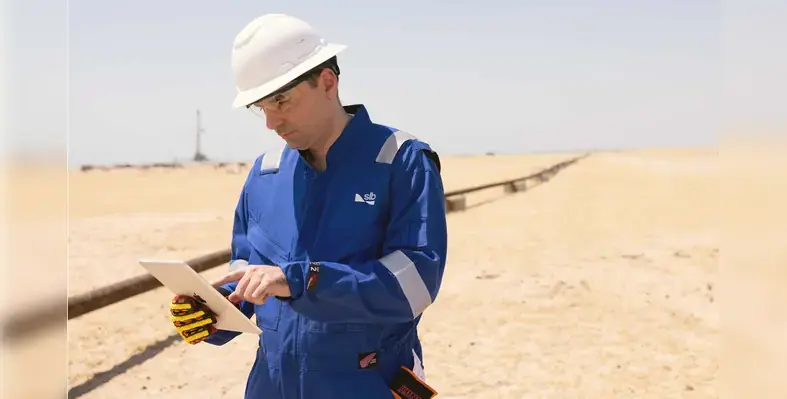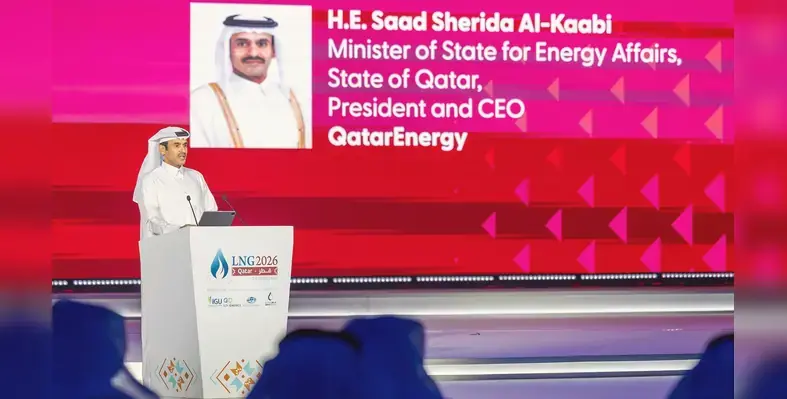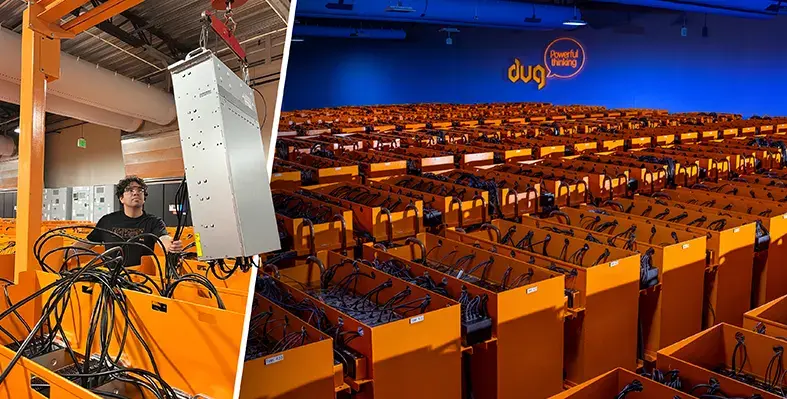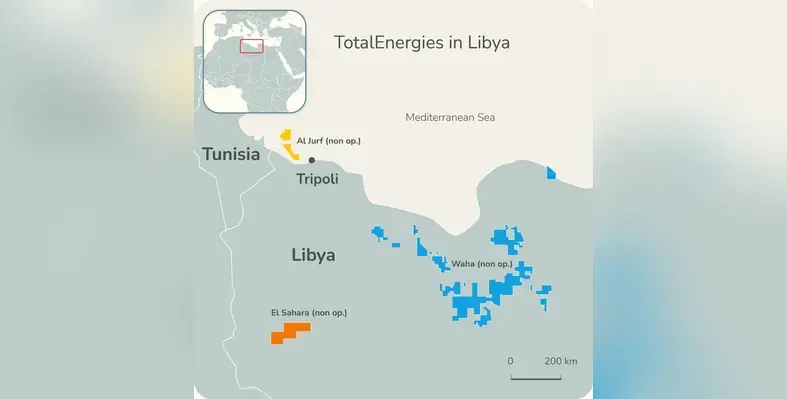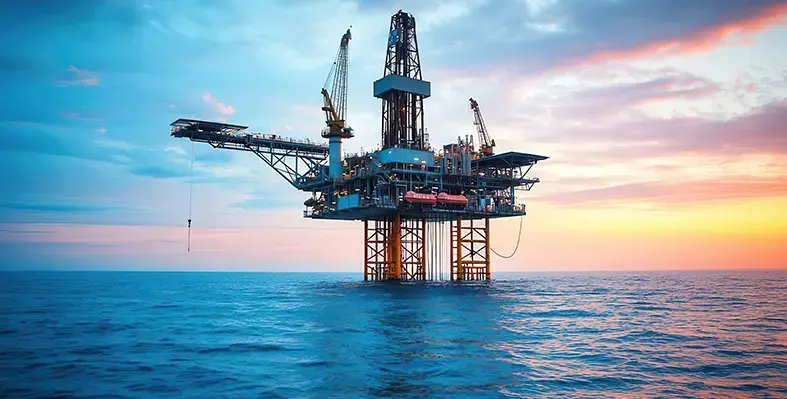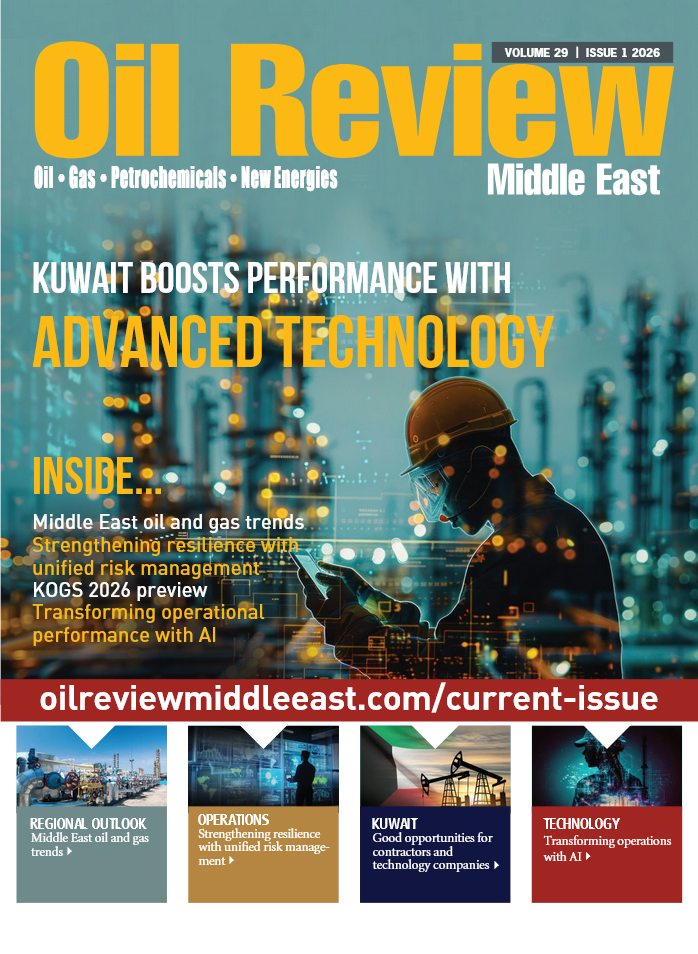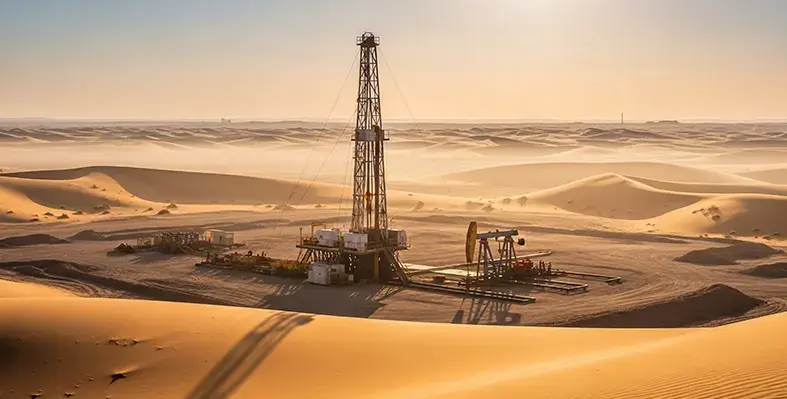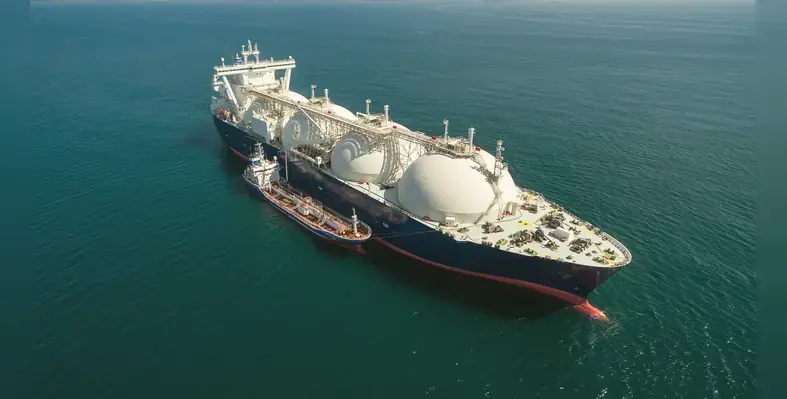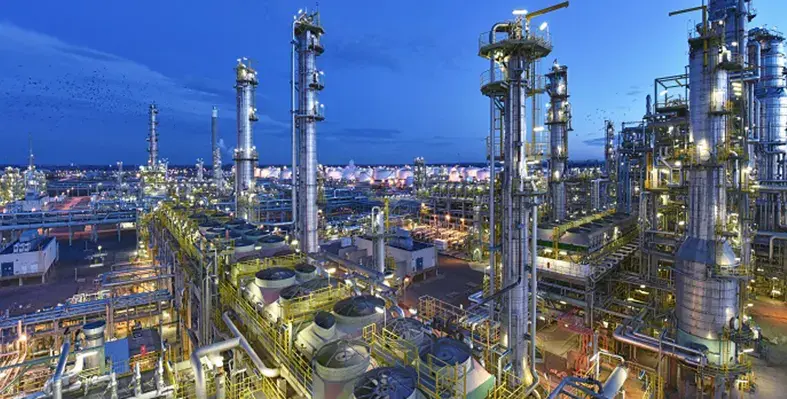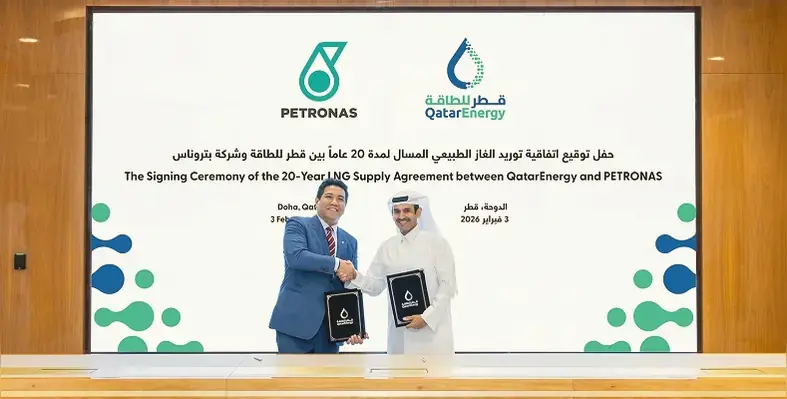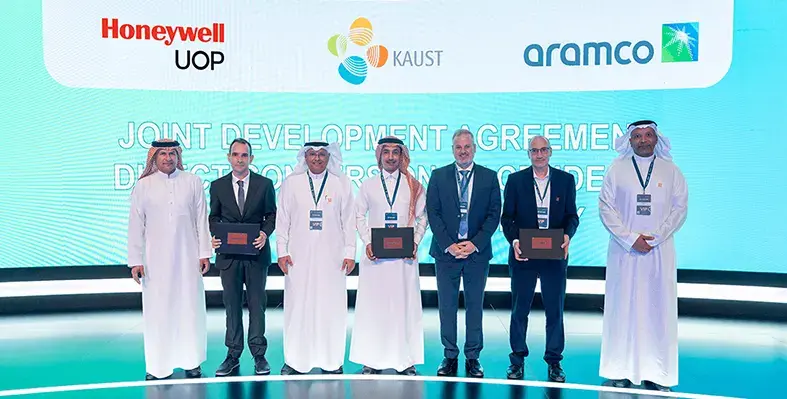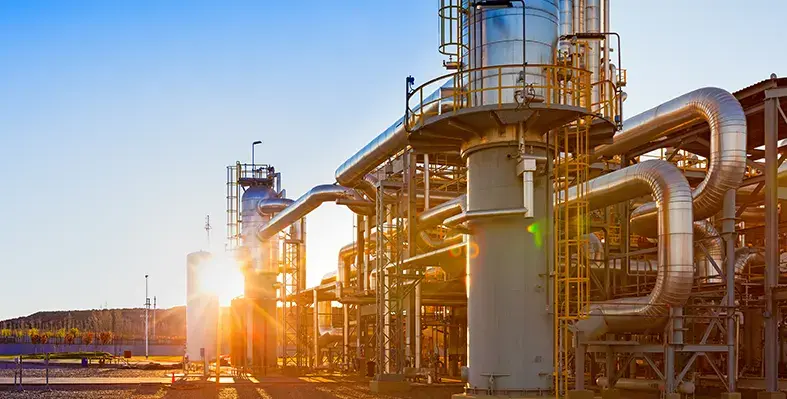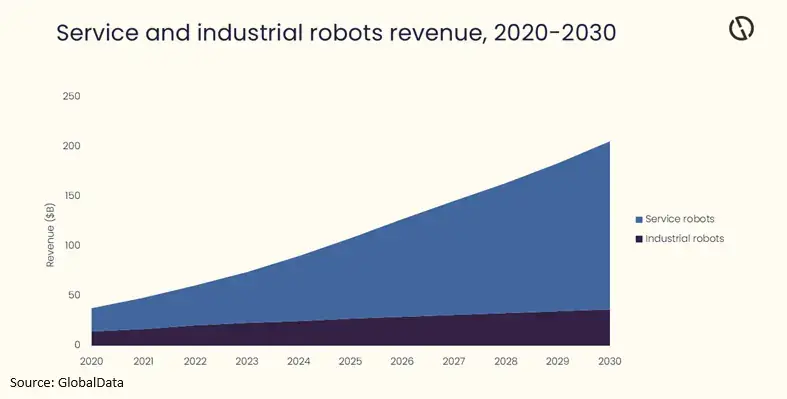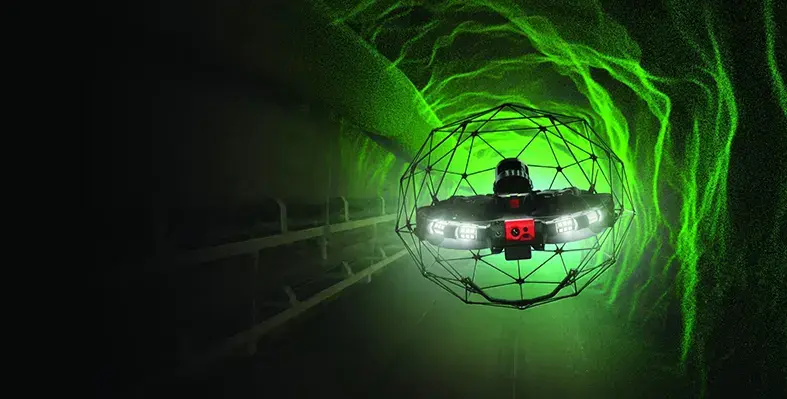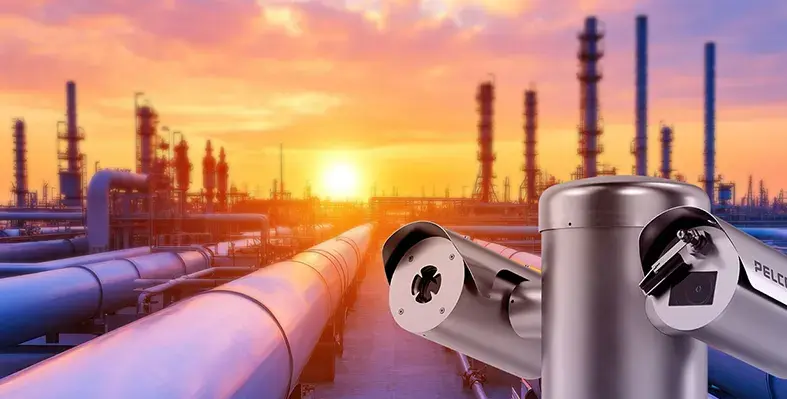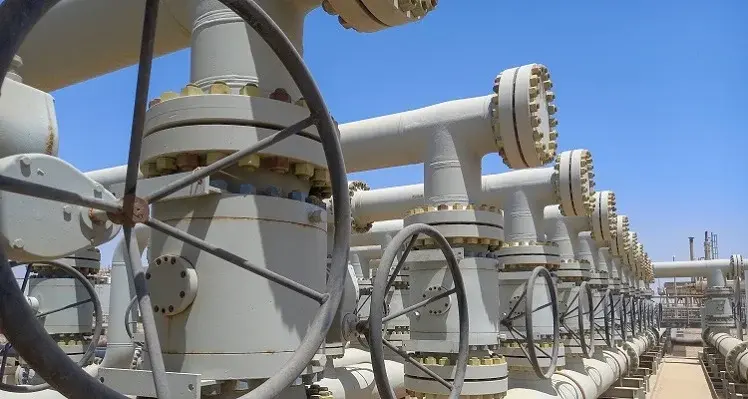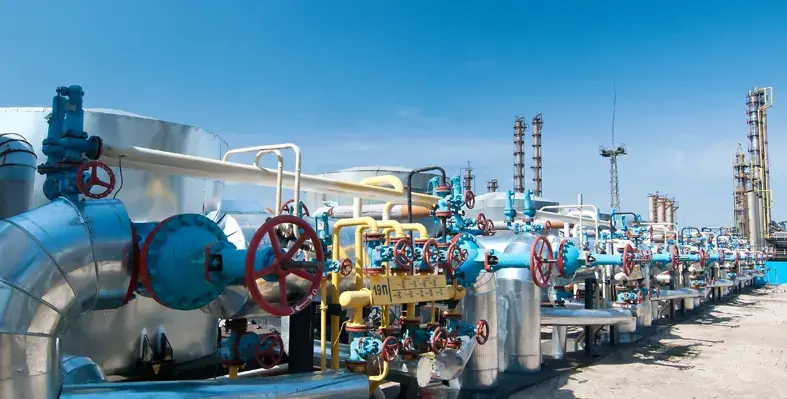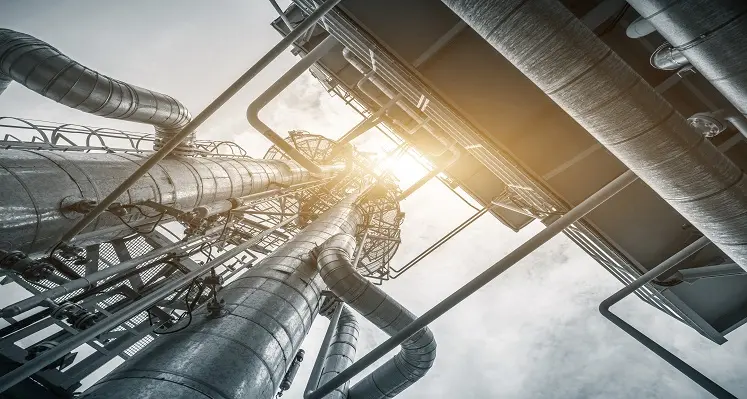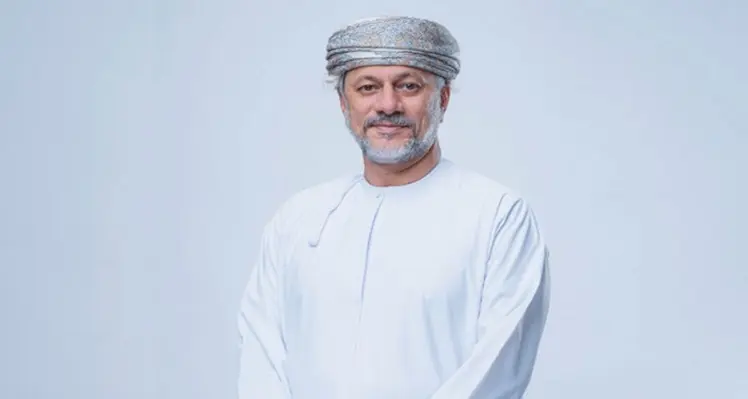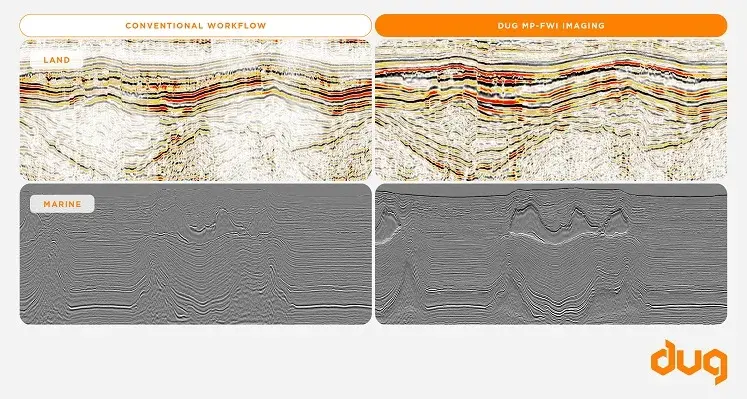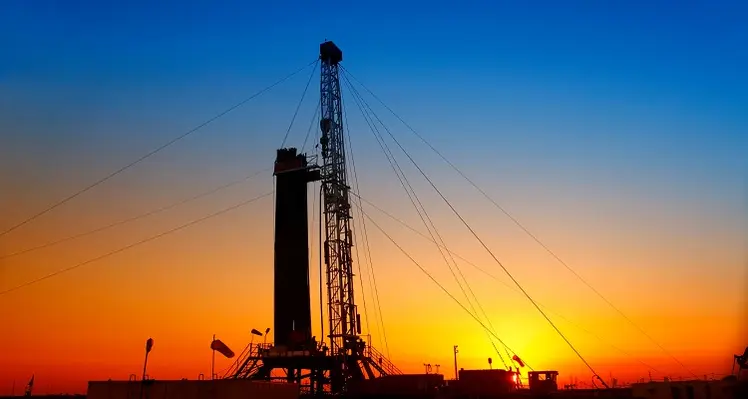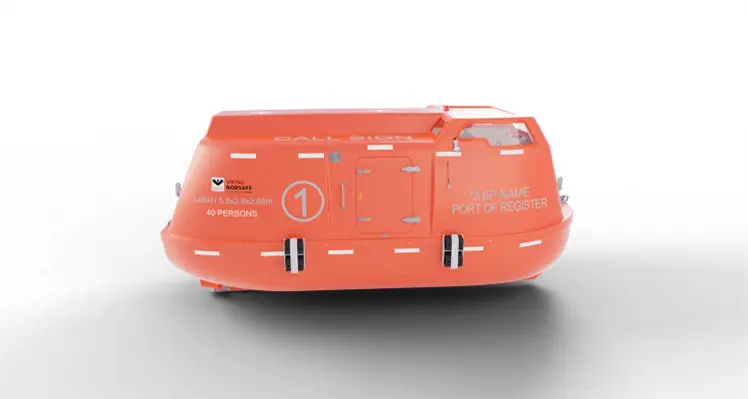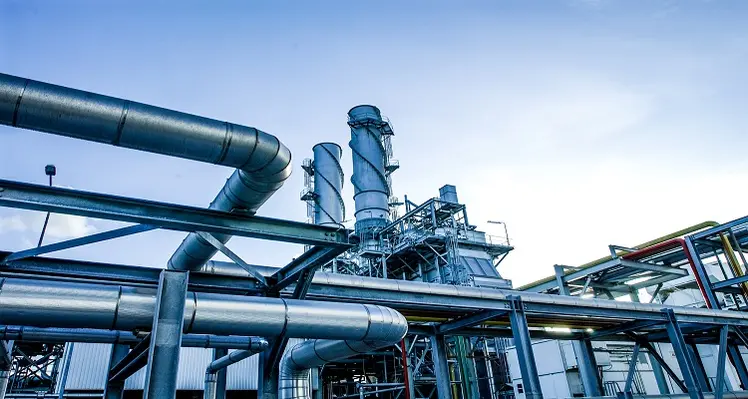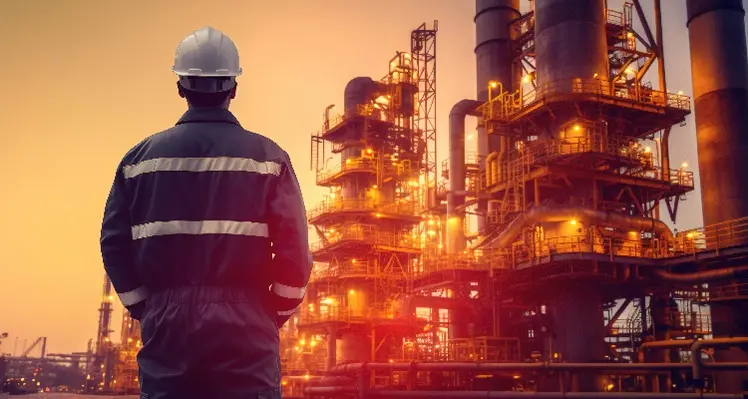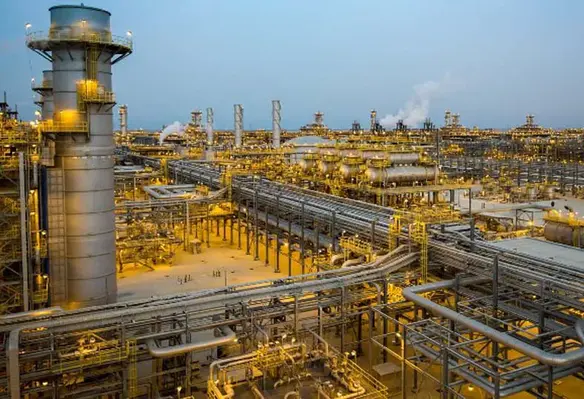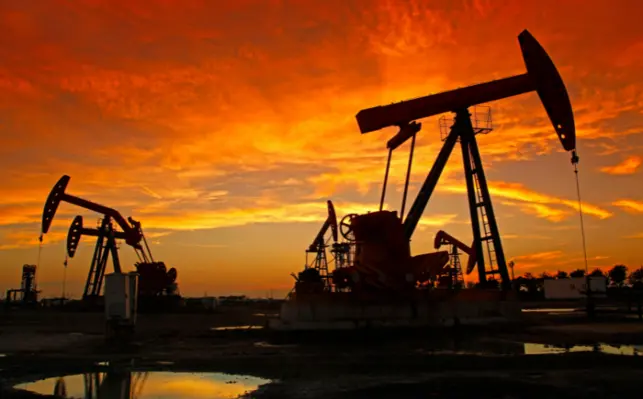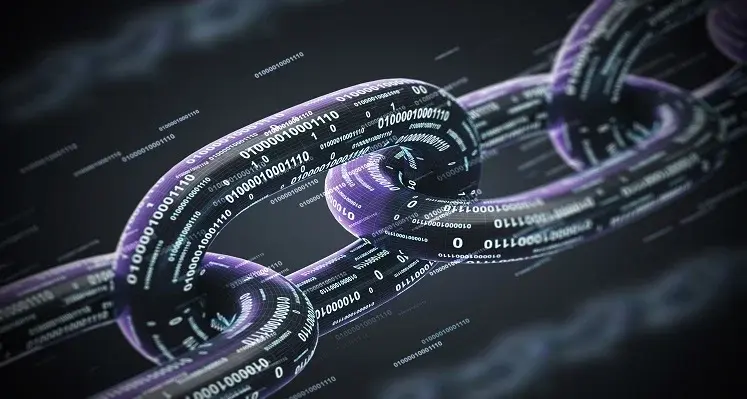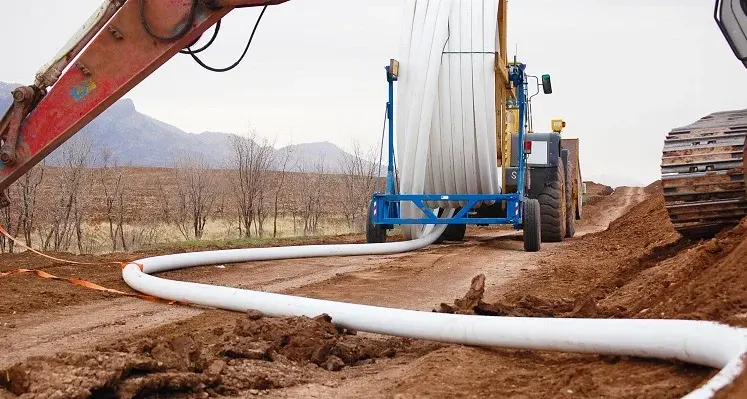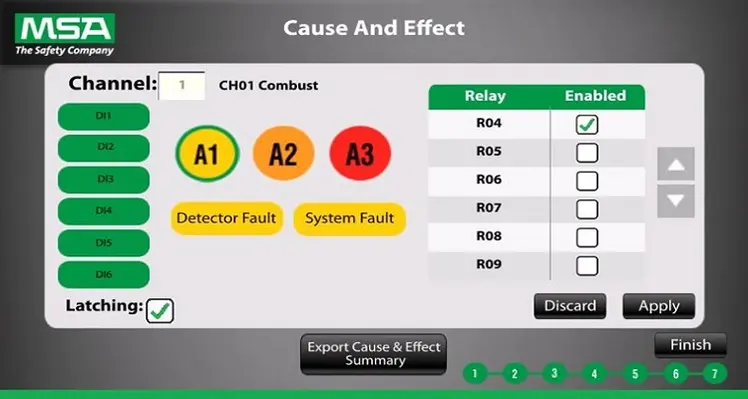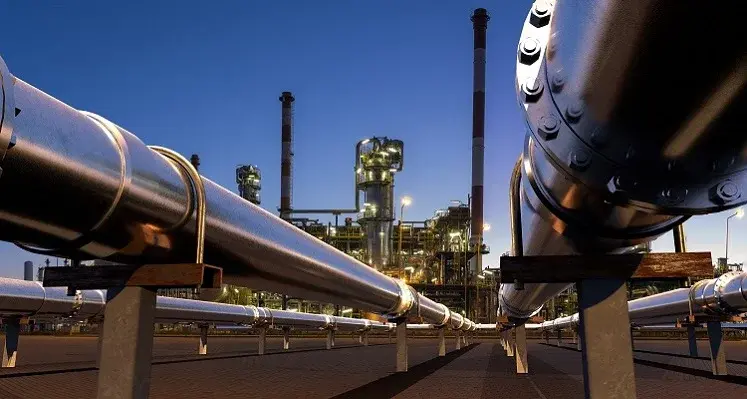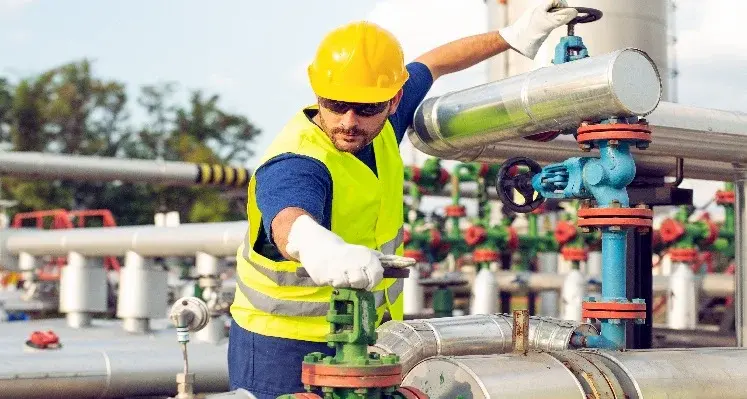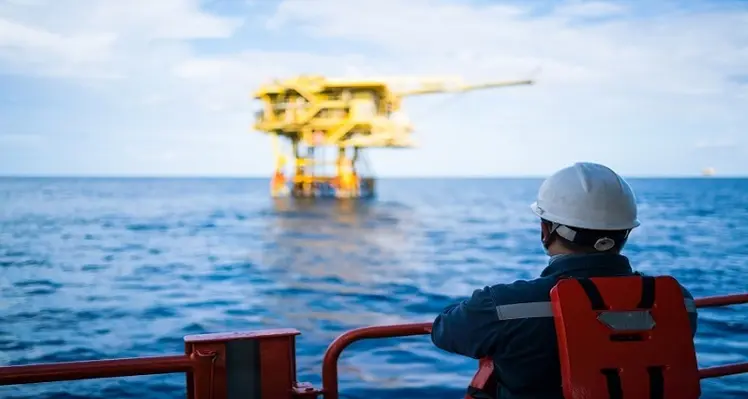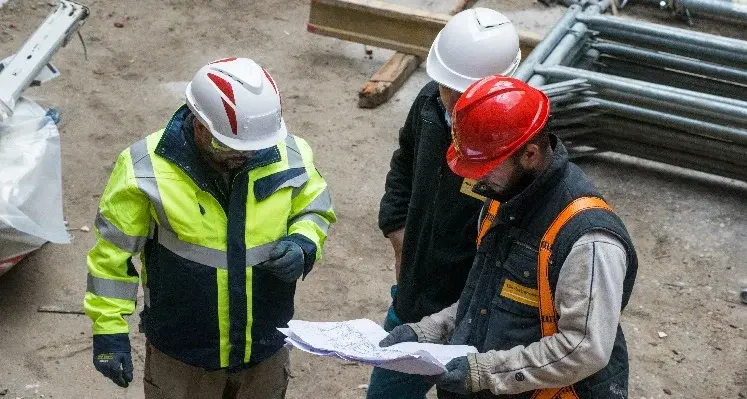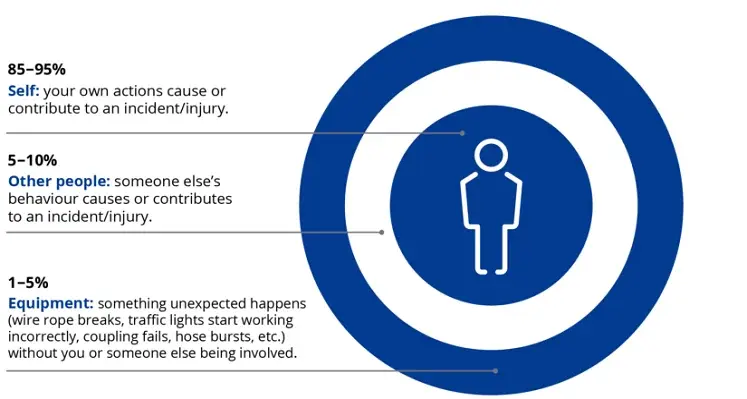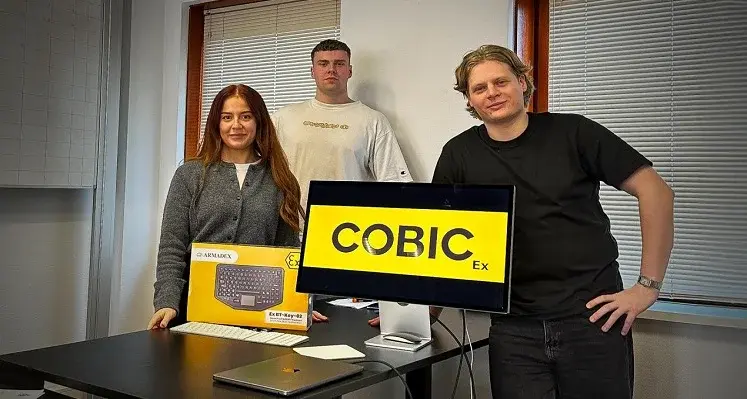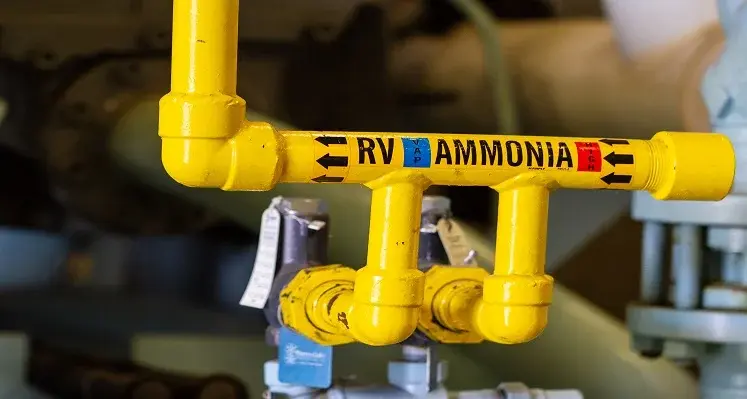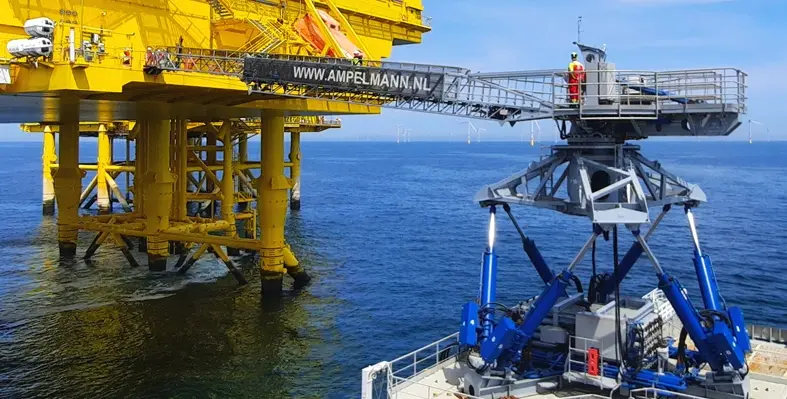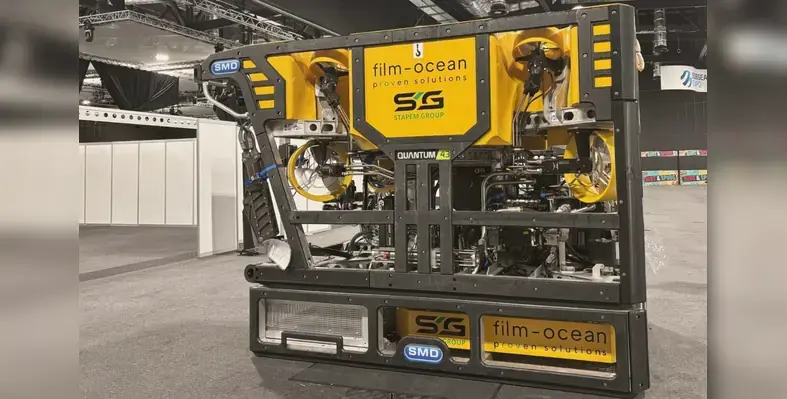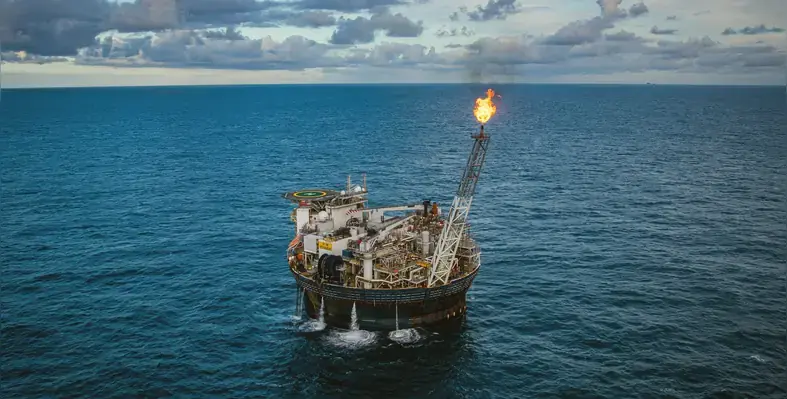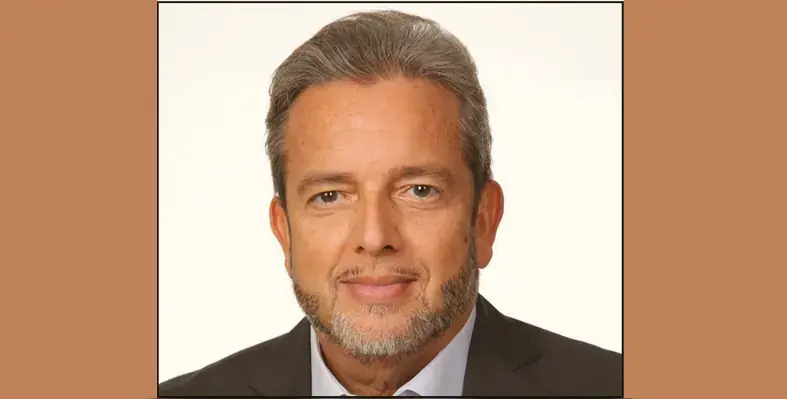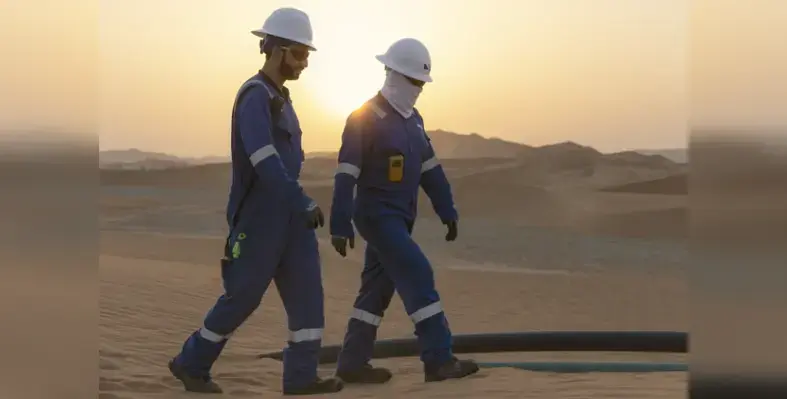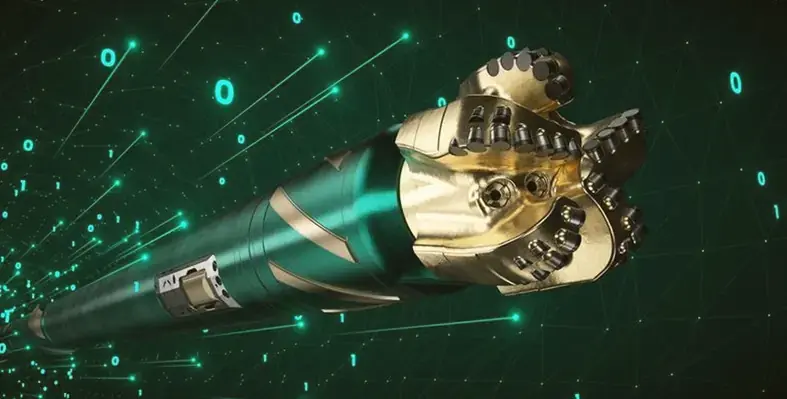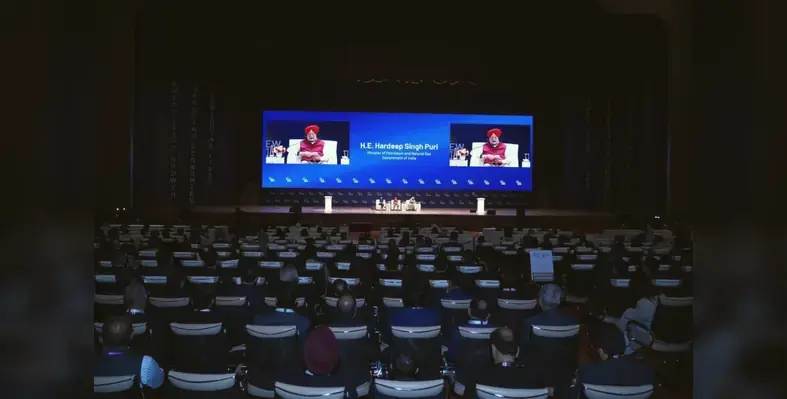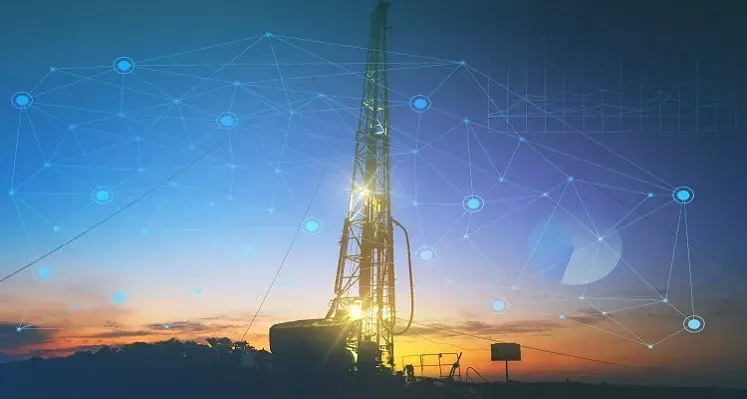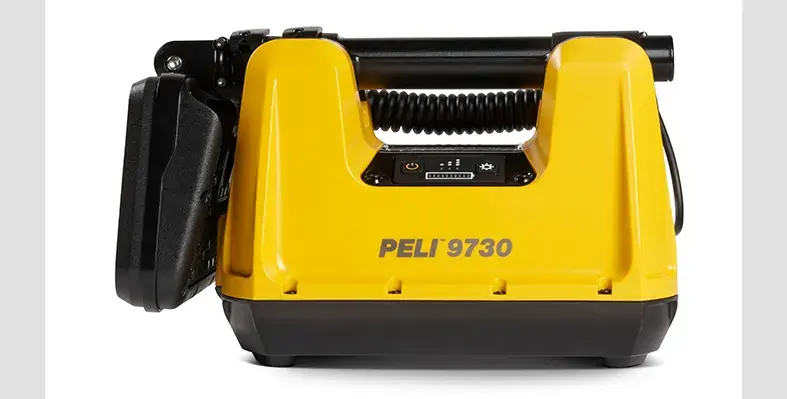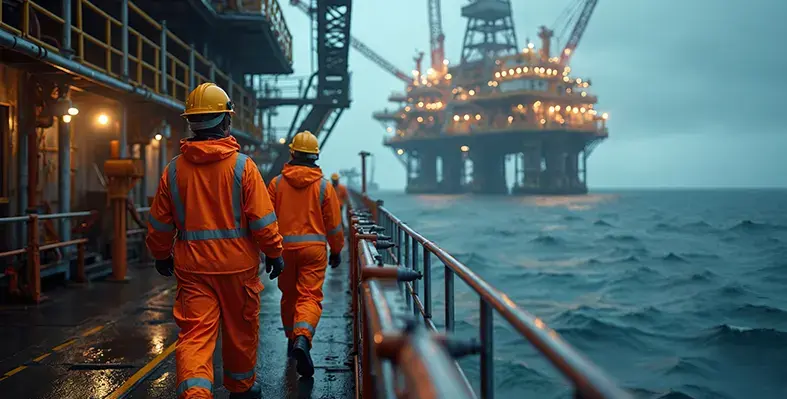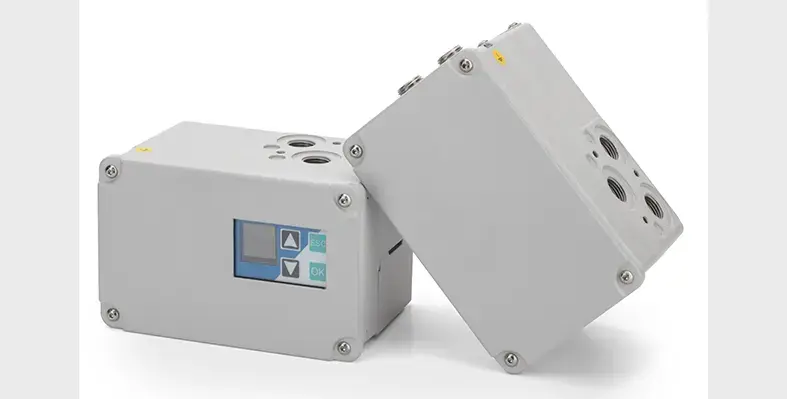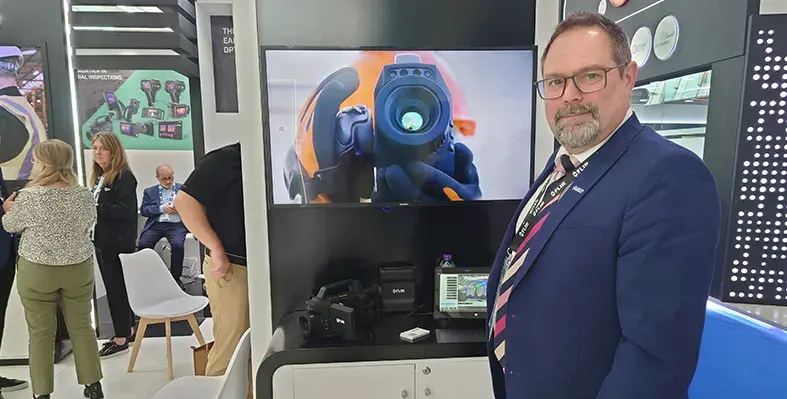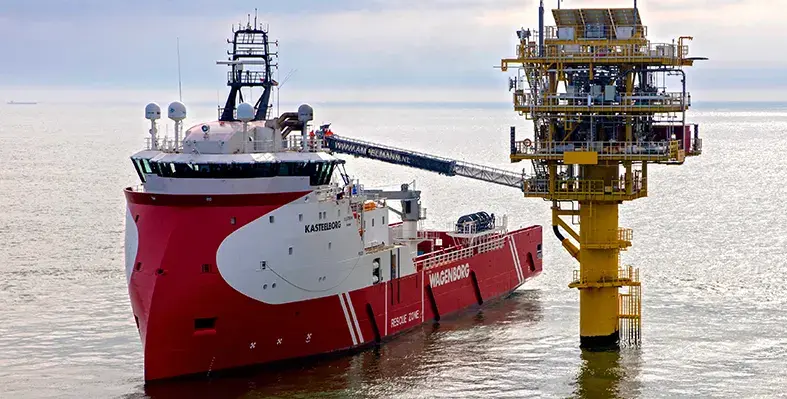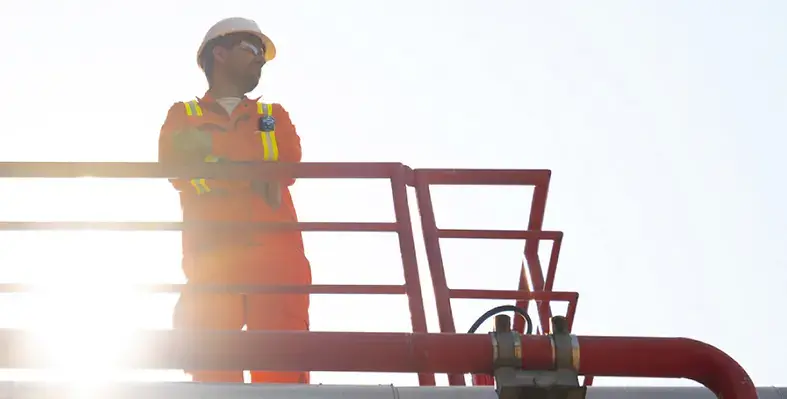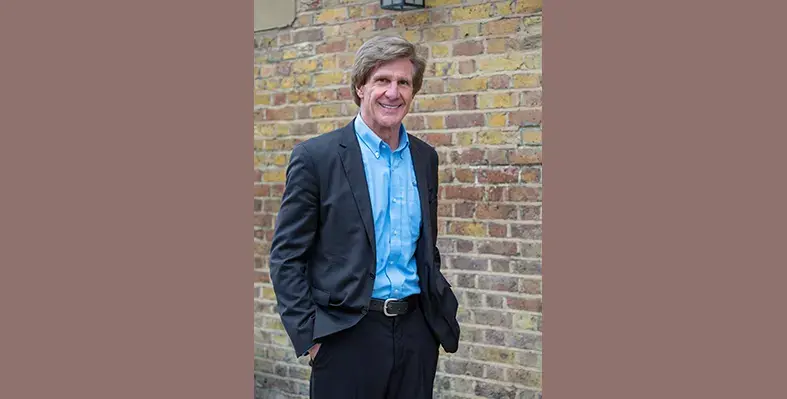In The Spotlight
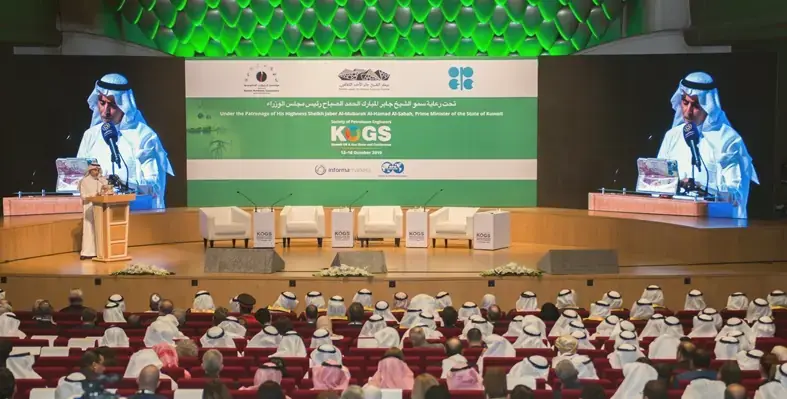
KOGS 2026 will serve as a strategic platform for high-level dialogue, technical excellence, and cross-industry collaboration. (Image source: SPE)
The Kuwait Oil & Gas Show and Conference (KOGS 2026), taking place from 3–5 February 2026 at the Grand Hyatt Kuwait and The Arena, is set to reinforce Kuwait’s position as a regional and global energy leader
Hosted by Kuwait Petroleum Corporation (KPC) and organised by the Society of Petroleum Engineers (SPE), KOGS 2026 will bring together senior government officials, global energy leaders, technical experts, and innovators to address the opportunities and challenges shaping the future of the energy industry.
Held under the theme “Shaping Tomorrow’s Energy,” KOGS 2026 will serve as a strategic platform for high-level dialogue, technical excellence, and cross-industry collaboration.
The conference programme will feature high-level ministerial sessions, CEO plenary discussions, strategic panels, and a comprehensive technical programme, presenting peer-reviewed papers and expert-led sessions. Core focus areas include digital transformation and artificial intelligence, asset optimisation, decarbonisation, carbon management, energy efficiency, and emerging technologies supporting resilient upstream and integrated energy operations.
KOGS 2026 will also feature dedicated programmes including the Emerging Professionals Forum (EPF), alongside initiatives designed to support knowledge transfer and talent development.
The KOGS 2026 Awards will recognise outstanding achievements and forward-thinking contributions across the energy sector. They will celebrate excellence in academic achievement, sustainability and energy transition, AI digital transformation, excellence in regional project delivery, diversity, equity & inclusion in workplace culture, while spotlighting individuals and organisations shaping the future of energy through young professionals.
Complementing the conference, the KOGS 2026 exhibition will bring together leading regional and international companies to showcase advanced technologies, oil derivatives, and services that support operational performance, safety, and sustainability across the energy value chain, providing a dynamic platform for networking, collaboration, and business development.
KOGS 2026 sponsors include KPC, Alkhorayef Fawares Petroleum, Kuwait Drilling Company, NESR, Shell, SLB, Zain, Baker Hughes, Action Energy, Halliburton, Saudi Arabian Chevron, , bp, KJO, Total, Senergy Holding, Rock Flow Dynamics, International Marine Construction Co, Tomax, Abraj Energy, Abraaj Energy, Superior Energy, NOV, MEOFS, ROSENXT and STRATEGY&.
Ahmed Al-Eidan, chief executive Officer of Kuwait Oil Company, said, “This year’s programme reflects the depth and ambition of KOGS 2026. High-level ministerial and CEO plenary sessions will offer strategic insights into geopolitical dynamics, energy economics, and responsible resource development, alongside a comprehensive technical conference and exhibition showcasing innovation, knowledge exchange, and industry best practices. Together, these elements reinforce Kuwait’s pivotal role in shaping the future of energy.”
For more information and updates, see the website here:
TotalEnergies has signed an agreement extending the Libya Waha Concessions up to December 31, 2050, paving the way for further investments and strengthening TotalEnergies’ presence in the country
The Waha concessions are held by NOC (59.16%), TotalEnergies (20.42%) and ConocoPhillips (20.42%) and are operated by Waha Oil Company (WOC), a company 100% owned by NOC.
This agreement sets new fiscal terms allowing to increase the production of these concessions, currently producing around 370,000 barrels of oil equivalent per day (boe/d). It clears the way for a new phase of investments, including the development of the North Gialo field, which is expected to add 100,000 boe/d of production.
“As we celebrate 70 years of presence in Libya, we are pleased to sign this agreement, and I would like to thank the Libyan authorities for their continued support, in particular Dr. Khalifa Rajab Abdulsadek, Minister of Oil and Gas of Libya and Masoud Suleman, chairman of the National Oil Corporation (NOC),” said Patrick Pouyanné, chairman and chief executive officer of TotalEnergies.
“TotalEnergies reaffirms its long-standing commitment to working alongside its partners to increase Waha’s production, starting with the development of the North Gialo field. Extending the Waha concession, with its low cost and low emission giant resources offering many opportunities to grow production, fits perfectly with our strategy.”
TotalEnergies has been present in Libya since 1956. In 2025, the company’s production in the country averaged 113,000 barrels of oil equivalent per day, from the offshore Al Jurf field (TotalEnergies 37.5%), the onshore El Sharara area (TotalEnergies 15% in former Block NC 115 and 12% in former Block NC 186), and the onshore Waha concessions (TotalEnergies 20.42%).
The agreement was signed during the Libya Energy & Economy Summit in Tripoli, where NOC chairman Engineer Masoud Suleman emphasised the substantial progress Libya has made in oil and gas production. He pointed out that this advancement occurred despite the ongoing challenges, particularly global price volatility. According to NOC figures, Libya recorded the highest average production rate in 2025 in comparison to the last decade, at 1.374mn bpd, with total crude oil production for the year reaching 501mn barrels.
Eng. Suleman noted that the NOC’s strategy targets an initial production increase to 1.6mn bpd, with a subsequent goal of reaching 2 million barrels per day in the medium term.
Majors have shown increased interest in Libya, with TotalEnergies amongst those actively pursuing exploration and production opportunities. Libya’s latest upstream licensing round launched in March 2025, the first in 18 years, has attracted more than 40 bids, signalling growing international interest in Libya’s largely untapped hydrocarbon potential.
ADNOC has awarded a US$942mn EPCI contract to McDermott International for the Nasr-115 expansion project, located around 130 km northwest of Abu Dhabi
The Nasr-115 Expansion Project is a critical component of the overall Nasr Phase II Full Field Development project, expected to increase oil production capacity to 115,000 barrels per day (bpd) by 2027. The contract will help advance ADNOC’s strategy to reach oil production capacity of 5mn bpd by 2027.
The scope of work covers comprehensive engineering, procurement, construction and installation for two topside structures, one new manifold tower, one jacket, one bridge and all associated pipelines, cables and brownfield modifications.
More of 55% of the contract value (more than US$500mn) will return to the UAE economy through ADNOC’s In-Country Value Program.
“McDermott shares ADNOC's commitment to increase offshore production capacity and will do its part with safe, efficient delivery of the Nasr-115 Expansion Project to the highest quality standards," said Mike Sutherland, McDermott's senior vice president, Offshore Middle East. "Our decades-long track record of delivering innovative, comprehensive solutions across complex offshore developments supports ADNOC's vision for sustainable energy growth and to meet its capacity goals as part of the P5 project.”
“This award underscores McDermott's position as a trusted partner in executing large-scale energy infrastructure projects in the region. We are proud to further support development of the UAE's energy sector in a safe and sustainable manner,” added Angela De Vincentis, McDermott's vice president of Operations, Offshore Middle East.
Nasr is one of ADNOC’s most advanced digital fields. It uses a suite of technology solutions to maximise production and minimise emissions, including AIQ’s Robowell, a pioneering artificial intelligence (AI) autonomous well-control solution. According to ADNOC, the work will include a new high-speed subsea cable connection which will support the scale-up of AI-enabled operations at Nasr, as ADNOC seeks to become the world's most AI-enabled energy company.
-
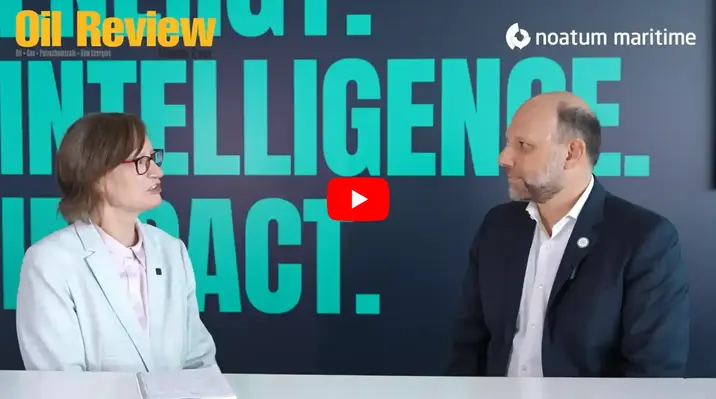
Exclusive Interview with Friedrich Portner, Maritime Cluster, AD Ports Group
-
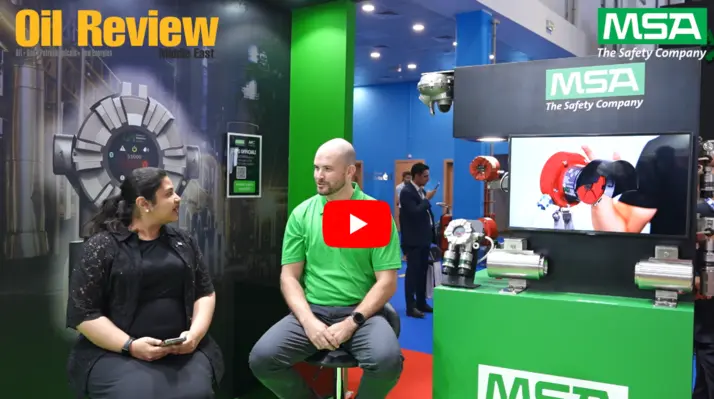
Exclusive Interview with Kevin Killeen, MSA Safety
-
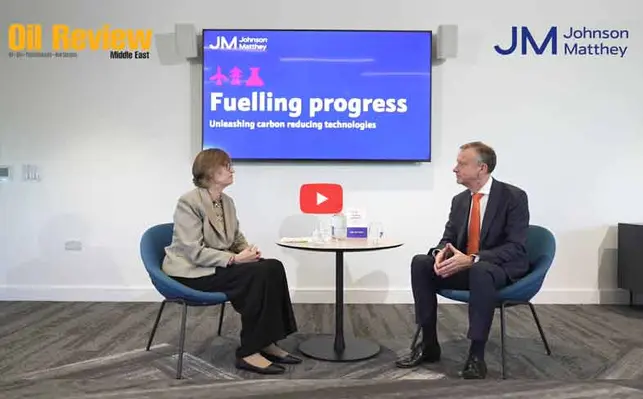
Exclusive Interview with Maurits van Tol, Johnson Matthey
-
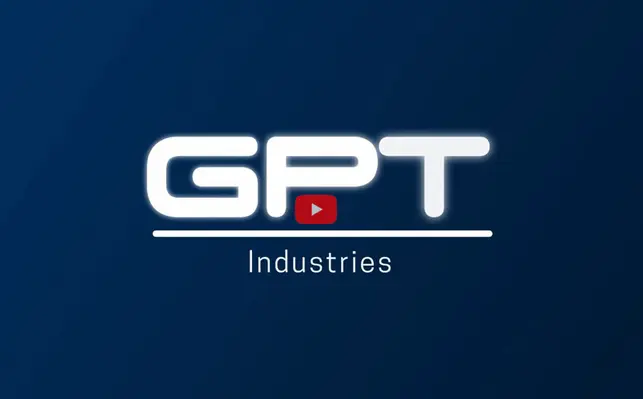
GPT Industries - Iso-Smart
-
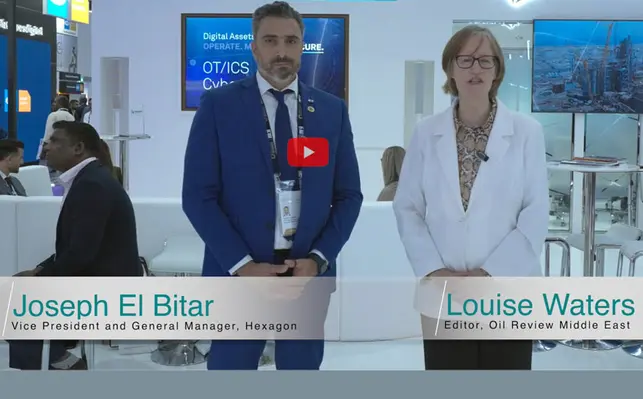
ADIPEC 2024 - Exclusive Interview with Joseph El Bitar, Hexagon
-
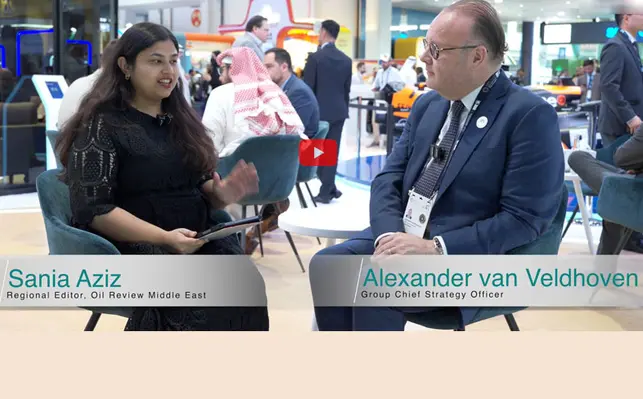
ADIPEC 2024 - Exclusive Interview with Alexander van Veldhoven, Bapco Energies
-
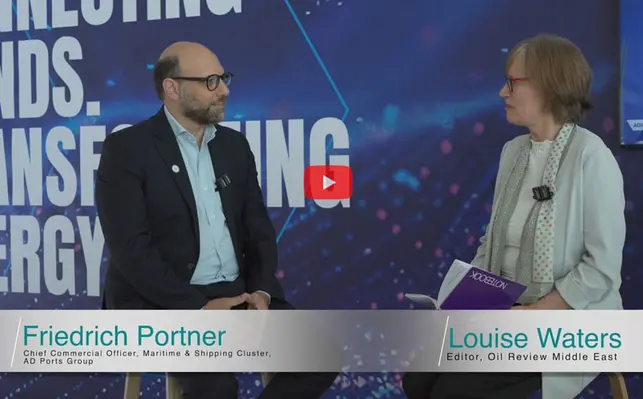
ADIPEC 2024 - Exclusive Interview with Friedrich Portner, Safeen Group
-
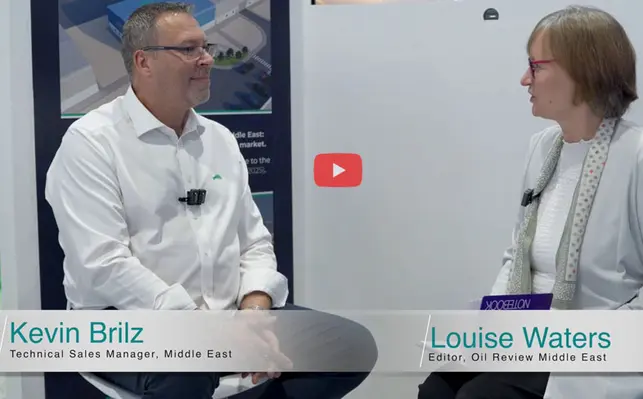
ADIPEC 2024 - Exclusive Interview with Kevin Brilz, Fishbones
-
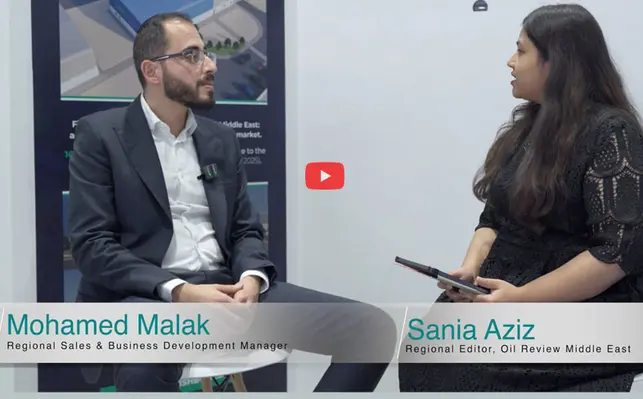
ADIPEC 2024 - Exclusive Interview with Mohamed Malak, Fishbones
-
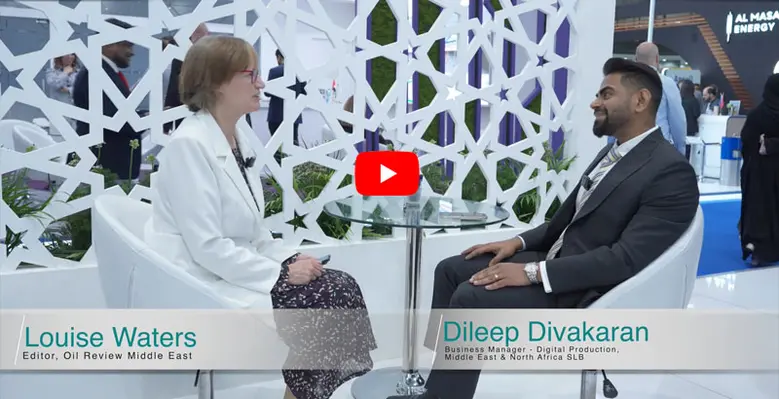
ADIPEC 2024 - Exclusive Interview with Dileep Divakaran, SLB
-
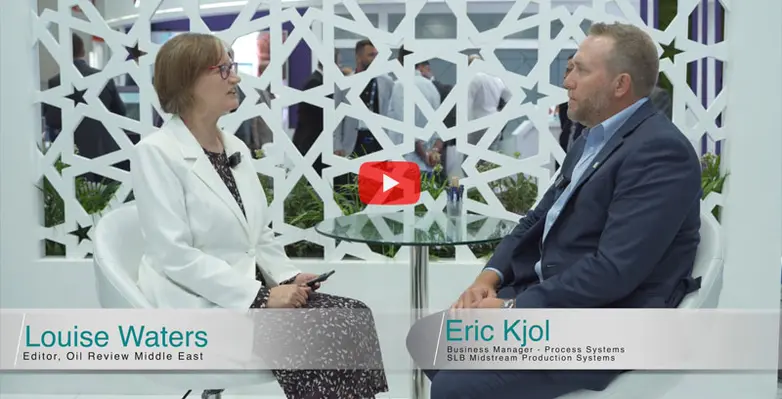
ADIPEC 2024 - Exclusive Interview with Eric Kjol, SLB
-
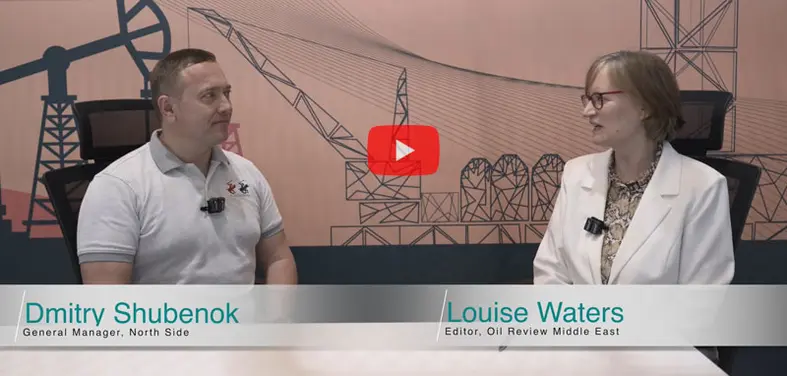
ADIPEC 2024 - Exclusive Interview with Dmitry Shubenok & Aleksandr Dolgikh, North Side
-
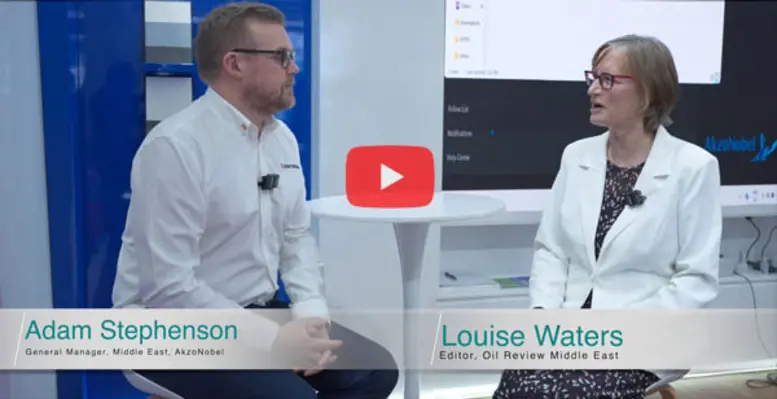
ADIPEC 2024 - Exclusive Interview with Adam Stephenson, AkzoNobel
-
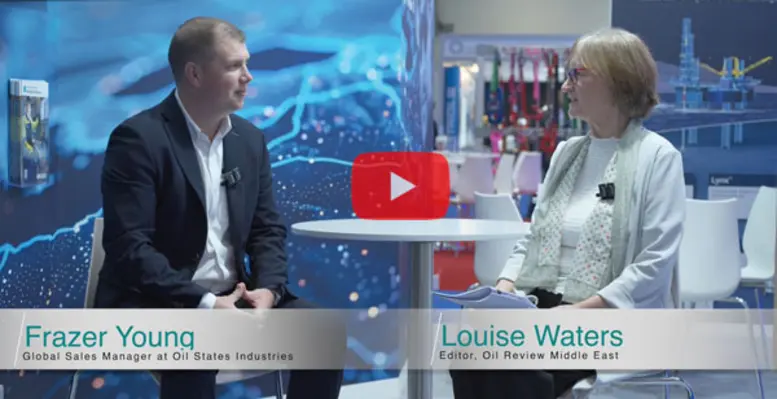
ADIPEC 2024 - Exclusive Interview with Frazer Young, Oil States
-
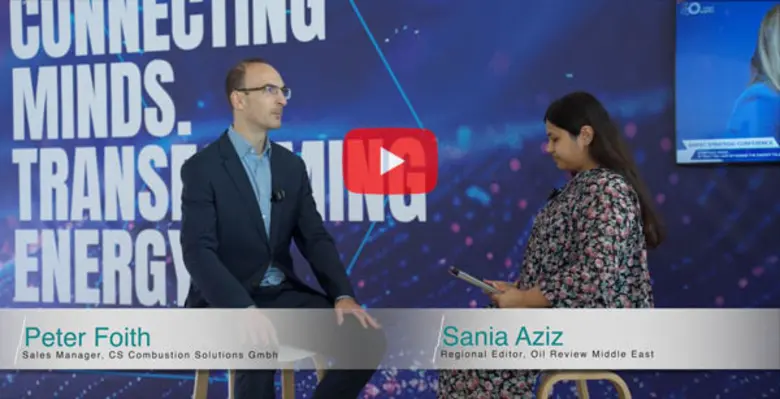
ADIPEC 2024 - Exclusive Interview with Peter Foith, CS Combustion Solutions GmbH
-
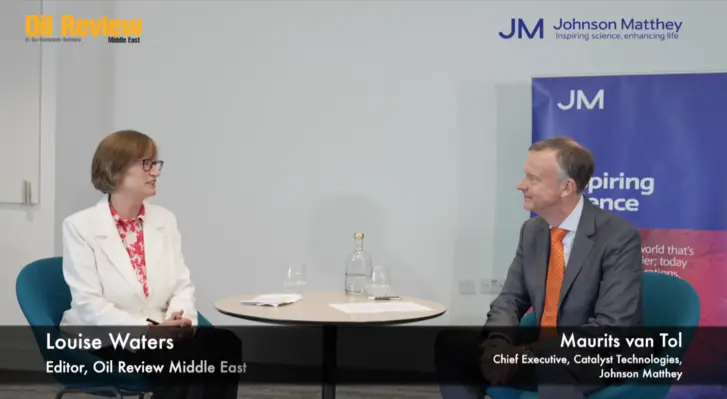
Exclusive interview with Maurits van Tol
-
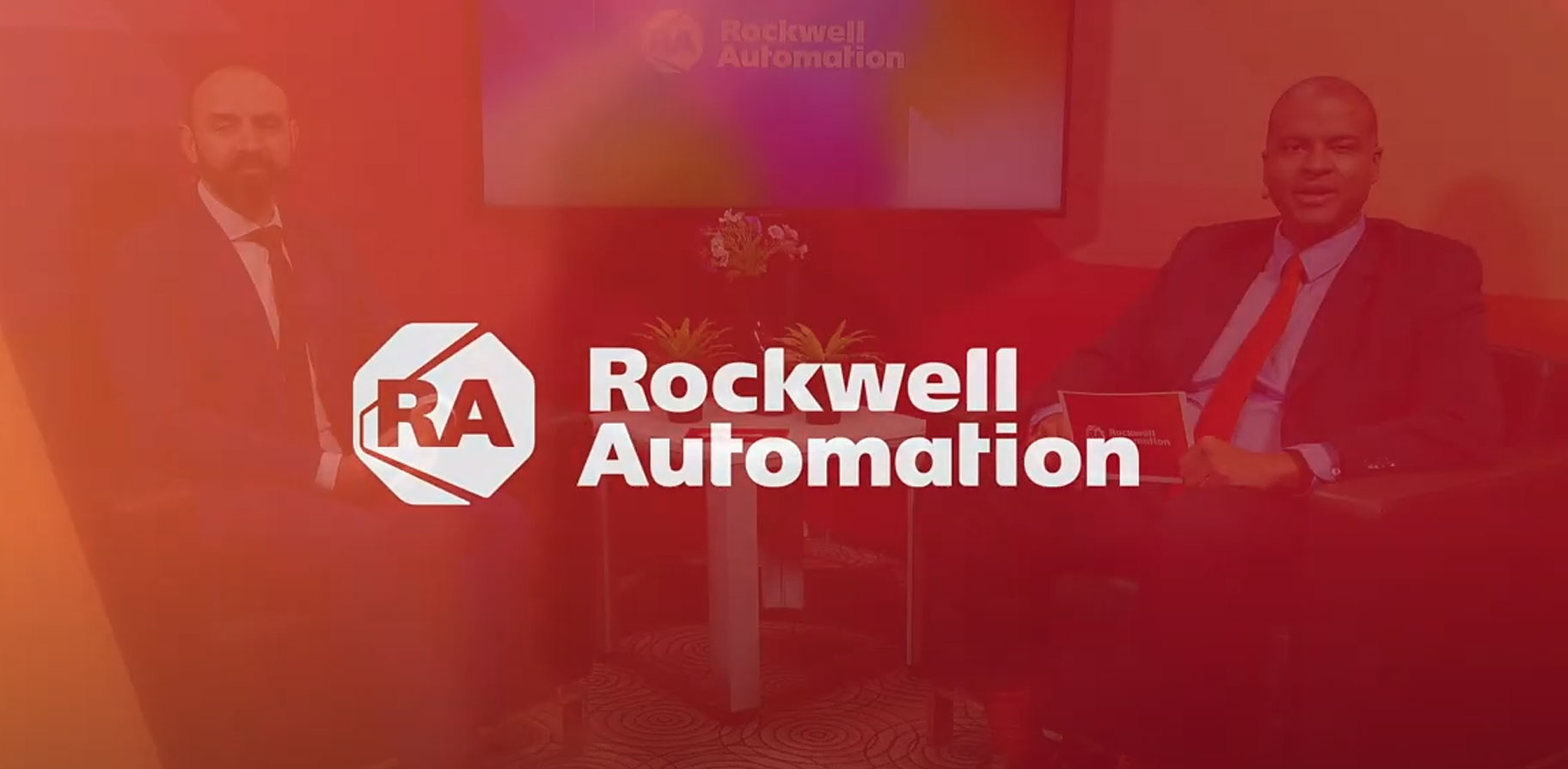
Rockwell Automation interview with Sebastien Grau
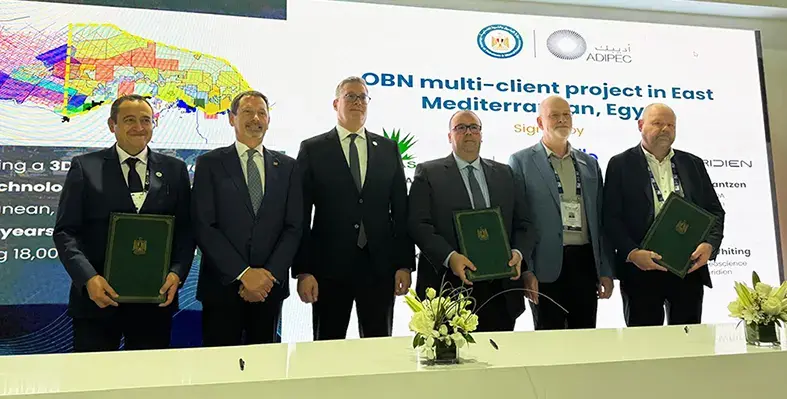
The project will combine the recognised OBN expertise of both parties to deliver an unparalleled subsurface dataset for Egypt and international exploration partners. (Image courtsey of EGAS)
Image courtesy of EGAS
Viridien and SLB have entered into an agreement with the Egyptian Natural Gas Holding Company (EGAS) to launch a major multi-client ocean bottom node (OBN) seismic acquisition and imaging programme in Egypt’s Eastern Mediterranean offshore
The largest project of its kind in the region, it will combine the recognised OBN expertise of both parties to deliver an unparalleled subsurface dataset for Egypt and international exploration partners, which will be available through a multi-client model. Data acquisition is scheduled to begin in the first quarter of 2026.
The project will give explorers and investors a clearer understanding of the region’s complex subsurface and help them identify new opportunities for exploration and enhanced production, as the country looks to boost production and decrease its reliance on imported fuel. The gpvernment is actively addressing policies to support an encouraging work environment for global investors,with a view to accelerating oil exploration and production rates, and there have been some encouraging new discoveries recently.
Mahmoud Abdel Hamid, chairman of EGAS, said: “The Egyptian Eastern Mediterranean has great potential for development but features some of the most challenging environments for seismic imaging owing to the complex faulting and the Messinian evaporite layer that masks deep reservoirs formed from complex channel sand bodies. We are pleased to work with our partners, Viridien and SLB, who have decades of specialised imaging expertise in the region and will apply their cutting-edge technologies to deliver the clearest insight into the subsurface to help operators better evaluate and prioritise opportunities.”
Dechun Lin, head of Earth Data, Viridien, said: “This agreement with SLB and EGAS marks a significant milestone for Viridien, giving new momentum to our commitment to Egypt as a key partner with over 30 years of in-country operating experience. Expanding our multi-client data library into the Egyptian Eastern Mediterranean with our advanced OBN imaging technologies will help showcase Egypt’s subsurface opportunities to the world.”
The global LNG shipping industry will require over 650 new LNG carriers by 2040, with significant new LNG supply set to come onstream, according to analysis by Wood Mackenzie
The Global LNG shipping outlook: form an ordering queue analysis examined recent LNG trade and shipping dynamics and the long-term requirement for newbuild LNG carriers.
Shipping capacity gap
New build investment was limited in 2025, according to the report findings. While strong deliveries are expected this year, the market outlook shifts from 2027 onwards. New large-scale LNG supply coming onstream this decade, supported by a record year of LNG supply final investment decisions in 2025, will drive demand for shipping capacity. Much of the new capacity is in the US, where LNG trades on a Free On Board basis. This will increase the proportion of LNG cargoes that react to fluctuations in global gas prices.
The result will be less direct LNG trade patterns, creating a more inefficient market that requires additional shipping capacity. More than 650 new LNG carriers (174,000m3 equivalent) are required by 2040 based on Wood Mackenzie trade and scrapping forecasts.
Build times are a complicating factor, with LNG carriers taking around 2.5-3 years to build at the moment, according to Fraser Carson, principal analyst, Global LNG Assets at Wood Mackenzie. "If players have already contracted LNG offtake to start before the end of the decade, the decision around placing a newbuild order needs to be made now."
Regulatory and fleet dynamics
Another factor accelerating fleet turnover are new maritime emissions regulations . The European Commission brought maritime CO2 emissions into its Emissions Trading System in stages between 2021 and 2024, making older, less efficient vessels increasingly uneconomic to operate globally. Average scrapping age has dropped from around 40 years historically to 26 years. Wood Mackenzie forecasts 73 vessels scrapped over the next five years, compared with 55 over the previous 11.
Carson said, "Vessels are exiting the LNG fleet more quickly and earlier than ever before, and the capacity lost will need to be replaced. We expect to see an upturn in ordering activity during 2026."
Aramco, Honeywell and King Abdullah University of Science and Technology (KAUST) are collaborating to scale up the development of Crude-to-Chemicals (CTC) technology in a bid to maximise the value of crude oil and reduce costs associated with CTC conversion
The new CTC pathway will entail converting crude oil directly into light olefins and other high-demand chemicals, resulting in improved fuel efficiency, carbon utilisation, and process economics—allowing for more efficient and cost-effective production at scale.
The collaboration aligns with Saudi Arabia’s Vision 2030 by helping to advance economic diversification, build national research and technology capabilities, and strengthen the Kingdom’s position in the global chemicals market, combining academia and industry expertise to accelerate technology development and national capabilities.
Dr. Ali A. Al-Meshari, Aramco senior vice president of technology oversight & coordination, said, “This collaboration with Honeywell UOP and KAUST furthers Aramco's efforts to drive innovation and shape the future of petrochemicals. By harnessing the power of cutting-edge technologies, we aim to enhance energy efficiency and unlock increased value from every barrel of crude. This novel Crude-to-Chemicals process is aligned with our vision of supporting the global transition towards cleaner, high-performance chemical production. Moreover, this initiative demonstrates our focus on contributing to the growth of a vibrant ecosystem, where the deployment of innovative technologies can create lasting value for our stakeholders, our communities, and the environment.”
Rajesh Gattupalli, Honeywell UOP president, added, “This agreement marks a defining moment in our strategic collaboration with Aramco and KAUST – and in the global evolution of Crude-to-Chemicals technology. With Honeywell UOP’s deep expertise in catalytic process design and commercial scale-up, we’re well positioned to drive this innovation forward.”
Across the Middle East, oil and gas operators are acquiring larger, denser and more complex seismic datasets to unlock increasingly subtle geological targets
But as data volumes grow into the hundreds of billions of traces, the real challenge is no longer just acquisition. It is how quickly and confidently those datasets can be turned into actionable insight.
When growing data volumes are coupled with modern processing and imaging algorithms, such as elastic multi-parameter full waveform inversion, and the continued rise of artificial intelligence (AI) based workflows, the result is that high performance computing (HPC) systems are being pushed harder than ever. This of course intensifies demands on power, cooling and scalability. For energy giants, a key challenge is ensuring their HPC infrastructure remains fit-for-purpose to keep pace with modern geoscience.
Global technology company DUG is known for its state-of-the-art software and its network of some of the largest supercomputers on Earth. Against a constantly evolving hardware landscape, the Australian-born company is keeping its edge with the deployment of 82 new NVIDIA H200 machines, adding 41 petaflops of compute power to its global data-centre capacity. Each machine delivers an order-of-magnitude performance uplift over DUG’s fastest CPU-only hardware, further reducing the company’s turnaround times across both testing and production workflows.
The operational realities of a modern HPC facility also present significant opportunities for reducing both cost and environmental footprint. One way that DUG has maximised the energy efficiency of its HPC ecosystem is through the use of immersion cooling – where servers are submerged directly into a fluid that removes heat far more effectively than air. The technology supports significantly higher compute density, reduces power consumption and creates a stable environment without hot spots, dust or oxidation. Immersion allows operation at higher temperatures compared to air-cooling, thereby also reducing reliance on evaporative cooling, allowing hybrid or dry-cooling configurations that lower water use. This ultimately makes efficiency and sustainability part of the same design.
“Our data-centre upgrade significantly increases our total compute power,” said Harry McHugh, chief information officer at DUG. “This translates to even faster delivery of huge datasets and more computationally intensive workloads, from AI-inference applications, to advanced seismic processing and imaging workflows, including our revolutionary DUG Elastic MP-FWI Imaging technology”,
“Designing and operating at this scale gives us intimate knowledge of what modern HPC demands in practice – and this expertise drives the solutions we build and operate for our clients.”
With its new Abu Dhabi office supporting large-scale projects across the region, and a technology stack built around energy-efficient HPC and advanced imaging algorithms, DUG is primed to power the next wave of discovery in the Middle East, delivering faster, clearer and more reliable subsurface insights.
Despite advances in digital technology, many oil and gas sites across the Middle East still rely on manual entry for tank and vessel inspections, resulting in days of downtime, high scaffolding costs and risk to human life
What if you could change all that with drone technology?
Inspections drones such as the Elios 3 are revolutionising the world of confined space inspections, improving safety, reducing downtime and enhancing operational efficiency.
Join us for an exclusive live webinar hosted by Flyability in association with Oil Review Middle East on ‘Transforming oil and gas operations with the Elios 3 drone’ on Tuesday 2 September at 2pm GST. Industrial experts will explain how drones such as the Elios 3 are transforming confined space inspections, and how you can integrate this technology into your operations seamlessly.
Key highlights:
Drone integration: learn how to safety and effectively implement drones in confined space
Safety and training: understand essential safety protocols and training strategies for your team
ROI: discover how to measure and achieve a strong return on investment with drone technology
Real world use cases: hear from the engineers using drone tech in the field on the impact Elios 3 is having on in oil and gas inspections.
Speakers and host:
Fabio Fata – senior sales manager, Flyability (moderator)
Eralp Koltuk – inspection lead engineer, Tüpraş
Danijel Jovanovic – director of operations, ZainTECH
Take your operations to the next level! Don’t miss out on gaining valuable insights into how drones can make inspections safer, faster and smarter .
From making inspections in hazardous confined spaces much safer to streamlining the whole process and providing valuable real-time data, you will get to see exactly how the Elios 3 is changing the game.
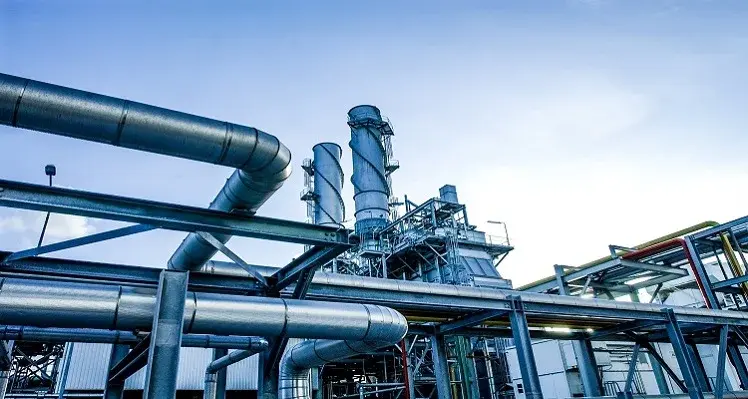
Methane emissions reporting is improving, but more action is needed to reduce emissions. (Image source: Adobe Stock)
Government and industry responses to UN Environment Programme (UNEP) satellite methane alerts rose from 1% to 12% cent in the past year, and oil and gas methane emissions reporting has improved, but action needs to accelerate to achieve the Global Methane Pledge goal of curbing methane emissions 30% by 2030, according to a new UNEP report
Atmospheric methane continues to be the second biggest driver of climate change after carbon dioxide, responsible for about one-third of the planet’s warming, and real-world data is a critical tool to track and reduce methane emissions.
The fifth edition of the UN Environment Programme’s (UNEP) International Methane Emissions Observatory (IMEO) publication, An Eye on Methane: From measurement to momentum, finds that member oil and gas companies of IMEO’s Oil and Gas Methane Partnership 2.0 (OGMP 2.0) are set to track one-third of emissions from global production using real-world measurements. The OGMP 2.0 is the world’s global standard for methane emissions measurement and mitigation in the oil and gas sector. Over the past five years, OGMP 2.0 membership has more than doubled to 153 companies in the countries, covering 42% of global oil and gas production.
One-third of global oil and gas production reports, or will soon report, emissions at OGMP 2.0’s Gold Standard – meaning emissions are tracked with real-world measurements. This positions a large amount of the global industry to effectively measure – and thus mitigate – emissions. One of the companies achieving 'Gold Standard reporting' in 2024 for having effectively achieved the highest levels of data quality is Eni. OGMP 2.0’s 2025 report recognized Eni for its continued progress, including identifying and quantifying emissions across non-operated assets, as well as training and technical assistance on the LDAR (Leak Detection and Repair) approach to fugitive emissions. LDAR training sessions were organised with the support of UNEP and delivered to National Oil Company (NOC) personnel.
The report highlights that while government and company responses to alerts from IMEO’s Methane Alert and Response System (MARS) have grown tenfold over the previous year, nearly 90% remain unanswered, necessitating an increase in response rates. Through MARS, UNEP has sent over 3,500 alerts about major emissions events across 33 countries. These alerts are based on satellite monitoring and artificial intelligence-supported analysis. IMEO has documented 25 cases of mitigation action in ten countries since MARS was launched in 2022, including across six new countries during the past year.
“Reducing methane emissions can quickly bend the curve on global warming, buying more time for long-term decarbonisation efforts, so it is encouraging that data-driven tools are helping the oil and gas industry to report on their emissions and set ambitious mitigation targets,” said Inger Andersen, executive director of UNEP. “But to keep the Paris Agreement targets within reach, the important progress on reporting must translate into cuts to emissions. Every company should join the Oil and Gas Methane Partnership 2.0, and both governments and operators must respond to satellite alerts – then they must act to reduce emissions.”





